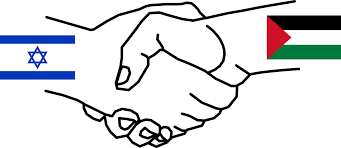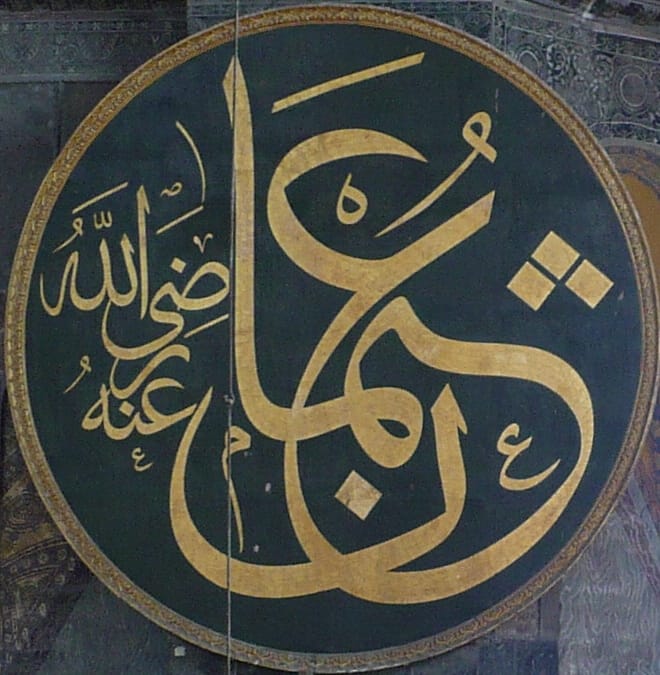Reactivating the Arab Peace Plan in the Face of the Lose-Lose Outcomes of October 7 and its Resulting War

On the anniversary of the October 7 massacres, Hamas official Basem Naim stated that the massacres were to bring the world's attention to the challenges faced by Palestinians in Gaza and elsewhere.[1]. In other submissions, the attacks were justified on the grounds of waging an armed resistance against Israel and the creation of a Palestinian state[2]. One year on, a Palestinian state is further from reach than ever. A disproportionate number of innocent Gazans have died, and many have been displaced from their homes. Israeli officials assert that Hamas cannot be “rewarded” for October 7 with a state. And hardliners in the Israeli government have risen into top positions and gained legitimacy in the face of the attacks. This article examines how the Arab Peace Initiative could have given the Palestinian people a better political status and how it can be potentially resurrected as an alternative to the current conflict that has highlighted Iran’s destabilizing tendencies in the Middle East and North Africa.

The conflict between Israel and the Palestinian people is the world’s longest ongoing military confrontation in modern history. Apparently, both sides have extremists who hold strong views about the other. Any time a peace deal is placed on the table, the hardliners on either side hope and sometimes undermine the prospects until it fails.
The Arab Peace Initiative & Why it Has Not Succeeded Yet
Arab states’ Peace Initiative is a great proposal for coexistence and recognition of Israel. After all, the whole issue is about land, and in today’s era of globalization, anyone can thrive anywhere and build a life. The Arab Peace Initiative, driven by the creation of two states on the 1967 boundaries as well as just solutions to the Palestinian refugee question and the creation of a sovereign Palestinian state paves the way for great prospects.
Extremists on both sides do not want to give in to the Two State Solution. Israel has been openly blamed for breaking this possibility by building settlements on land that should go to the Palestinian people.
In every modern legal jurisdiction, building on settlements often ends with the transfer of property for compensation. Thus, such a possibility can always be introduced to rectify the problem of settlements.
Israel has insisted from the 1990s that as long as no one from the Palestinian side is coming forward, they see it as a privilege to let their citizens build and live anywhere on the holiest lands of the Jewish Faith[3]. This seems to indicate that the Palestinian right to self-determination is not enough when it is dormant – a credible Palestinian leader must come forward to actualize Palestinians' self-determination.
Prior to 2004, the main person who could have exercised Palestinian national unity was Yassir Arafat. Today, there is no unifying figure among Palestinians who can rise to unify and lead the people. This is what created the gaps for groups like Hamas to use violence in ways that have threatened peace in the region and around the world at large.
Arab officials have repeatedly encouraged Palestinians to use peaceful protests. Some have gone as far as saying that the methods used by Gandhi against the British Empire and Martin Luther King Jr against the United States can yield superior results for Palestinians[4].
Unifying Palestinians, Building Palestinian Statehood & Isolating Iran and Other Hardliners
Putting the two points together, there should be a leader who will unify and lead the Palestinian people – at least someone close to such a figure is needed. Without a unifying person, there can and should be a unifying body that can lead negotiations and set clear demands and expectations for dialogue toward the creation of a better Palestinian state system.
If settlements are not considered a major obstacle, then Palestinian statehood and its cohesion must be put together in some form to secure the best interests of all Palestinians. Some of the hardliners in Israel and the United States who acknowledge the need for a Palestinian state agree that some form of statehood could be used as a starter in the face of current threats posed by Iran.
Iran’s vision for the Middle East and the world is a bleak one. It involves spreading their own authoritarian worldview to all nations. This has led to countless wars in the Middle East and North Africa that have claimed over a million lives in the past two decades. It was under Iranian instigation that October 7th was launched with no endgame in sight but to destabilize the region to seek goals best known to the Iranian regime.
Thus, it is necessary for the people actually involved in the conflict who can and should be doing things to give Palestinians a better life to set a process in progress. In this process, the best interest of Palestinians on all levels should be put in place. If this will mean statecraft and unification of the Palestinian people to enable them gradually assert their goals and be the best version of themselves, that should be encouraged.
American politicians are trying to mobilize support for a regional unification of forces to seek the Palestinian state. Evidence has shown that the more stable and efficient countries in the Middle East thrive on the traditional model, which encourages peacebuilding and the development of vital institutions. Therefore, a form of statehood for the Palestinian people that will lead to unity and collaboration rather than violence will help set things in motion for dialogue and better relations.
After that, states with a common vision of creating a prosperous Arabian Peninsular and Middle East can be realized. This can lead to the unification of economic, political, and military resources against the barbaric outdated and insensitive recommendations of the Iranian regime.
Conclusion
The world has changed a lot since the first Arab Peace Initiative was proposed. Israeli hardliners are human. They have hearts and also want peace. Therefore, the best way forward is to put something in motion that will lead to the creation of a Palestinian unity plan and statecraft system. Once such an arrangement is in process, Israel and the leading Gulf states can come up with practical agreements that will promote the goals of coexistence. This will bring countries that support democracy and the rule of law together to guarantee a common peace between Israel, Palestine, Saudi Arabia, UAE, Bahrain, and all countries in the region. In the end, the benefits of peaceful coexistence outweigh any form of hatred and retaliation. States and people in the region have been denied too much because of hate, violence, and incitement. The time has come to try a new path – to plunge into peace under a more efficient Palestinian statecraft system.
[1] Riz Khan. "Israeli president and Hamas spokesperson reflect on one year since October 7 attacks" Aired: October 7, 2024. Available at: https://english.alarabiya.net/webtv/programs/riz-khan/2024/10/07/israeli-president-and-hamas-spokesperson-reflect-on-one-year-since-october-7-attacks
[2] US National Counterterrorism Center. Hamas. Written: September, 2024. Available at: https://www.dni.gov/nctc/ftos/hamas_fto.html
[3] David Brooks. The Missed Chance for Peace. Published: October 12, 2023. Available at: https://www.nytimes.com/2023/10/12/opinion/israel-palestinians-gaza-peace.html
[4] Arab News. No heroes in Hamas-Israel conflict, only victims: Former Saudi intelligence chief. Published: October 18, 2023. Available at: https://www.arabnews.com/node/2393226/saudi-arabia




